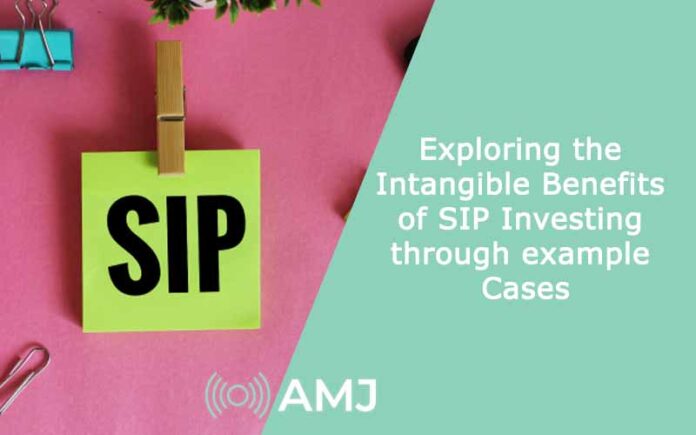
Systematic Investment Plans (SIPs) are a popular method of mutual fund investing in India. SIPs help investors contribute regular small sums that get invested across market cycles. While SIPs can help investors accumulate significant corpus over long terms through the power of compounding, they also deliver key intangible benefits.
Contents [hide]
What is an SIP?
An SIP or a Systematic Investment Plan refers to a method of investing in mutual funds where an individual sets aside a fixed amount to be invested at regular intervals. The most common intervals for SIP investments are monthly or quarterly. An SIP allows an investor to contribute consistent smaller amounts instead of making a large one-time investment. The invested amounts are then utilized to buy units of the chosen mutual fund scheme at the prevailing NAV or Net Asset Value. Over time, as the invested amounts accumulate and compound, SIP calculator can help individuals build a sizeable corpus.
Inculcating financial discipline
Anil, a 28-year-old IT professional, could never save consistently. His income fluctuated based on project incentives and discretionary spending tended to inflate accordingly. Starting a modest Rs. 5000 monthly SIP instilled financial discipline. The auto-deduction of the SIP installment imposed a spending restraint while also ensuring regular investing. Within a year, Anil was thriftier, with higher savings despite limited income growth. The SIP had demonstrated the power of cutting waste and inspired the savings habit.
Overcoming emotional decisions
Seema, a 32-year-old entrepreneur, had burned her fingers trying to time equity investments previously. She would get overwhelmed by either fear or greed, ending up with sub-optimal buying and selling decisions. A SIP took emotions out of the equation given its fixed amounts and timing. Seema’s Rs. 10,000 monthly SIP was invested through ups and downs. Not having to make decisions freed Seema from emotional influences and improved returns.
Inculcating patience
Ravi, a 40-year-old banker, was an impatient investor who expected quick returns. He would shift money rapidly between funds and stocks trying to profit from momentum. The constant change only resulted in transaction costs and taxes eroding returns. A SIP in a diversified equity fund taught Ravi patience. He was forced to stay invested through market ups and downs. Ravi realized the wisdom of long-term investing as his SIP corpus grew steadily over months and years.
Teaching risk management
Neha, a 35-year-old homemaker, was very risk averse when it came to investing. She avoided equities given the risk of capital loss. However, sticking only to low-risk options like FDs resulted in negligible growth. On her advisor’s suggestion, Neha started a modest Rs. 3000 SIP in a balanced fund. Although worried initially, the steady but growing SIP corpus helped Neha understand markets and appreciate the power of compounding. Over time, Neha gained comfort with market fluctuations and increased equity exposure.
Conclusion
As these examples demonstrate, SIPs can transform investing habits and mindsets. The discipline, regularity and hands-off approach inherent in SIPs make them powerful vehicles for achieving both financial and intangible benefits for investors in India.












![Index of Money Heist [Season 1, 2, 3 & 4 – All Episodes, Cast and Plot] Index of Money Heist](https://www.asiamediajournal.com/wp-content/uploads/2021/05/Index-of-Money-Heist-3-100x70.jpg)